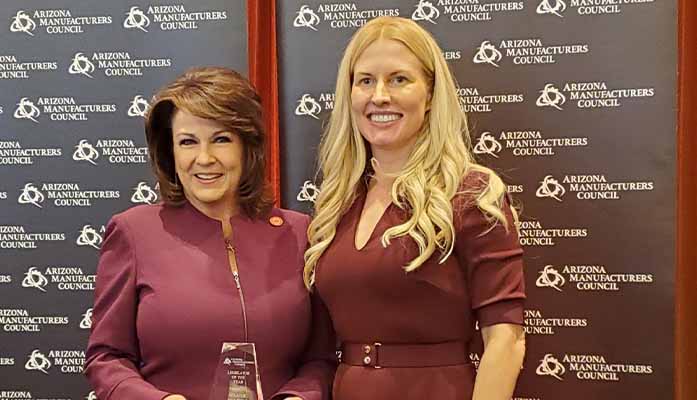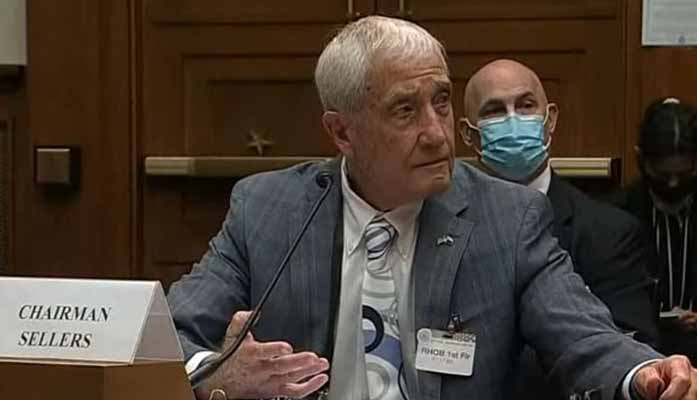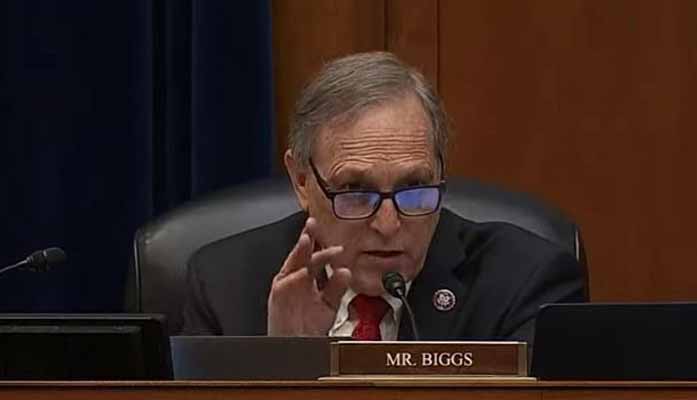
by Terri Jo Neff | Oct 8, 2021 | News
By Terri Jo Neff |
State Senator Sine Kerr was recognized Thursday by the Arizona Manufacturing Council as its Legislator of the Year, while Dexcom received the group’s Manufacturer of the Year award, EMD Electronics was named Medium Manufacturer of the Year, and S&A Industries took home the title of Small Manufacturer of the Year.
Kerr (R-LD13) chairs the Senate’s Natural Resources, Energy, and Water Committee, and is a member of the Appropriations and the Transportation / Technology committees. She said she was honored to receive the award, and thanked her legislative colleagues for their support “of pro-business policies” which Kerr says continue to strengthen Arizona’s job creators, manufacturing, and economy.
Others recognized by the Arizona Manufacturing Council on Thursday include Advocate of the Year – Steve Trussell of Arizona Rock Products Association and the Arizona Mining Association; Excellence in Innovation Award – CP Technologies; Excellence in Sustainability – Lucid; and Economic Driver Award – intel.
The award summit also featured a statement by Gov. Doug Ducey, as well as a panel discussion about Workforce That Works and a legislative update from U.S. Rep. David Schweikert.
Ducey has declared October as Arizona Manufacturing Month to draw attention to all the manufacturing businesses in the state which play a vital role in expanding Arizona’s economy. Currently there are 179,500 manufacturing jobs in Arizona, according to the U.S. Bureau of Labor Statistics.
During his comments, Ducey said one of his priorities is pushing back against policies coming from Washington D.C. that are slowing the nation’s and Arizona’s economic recovery. He also pointed to the state’s positive reputation for being receptive to new businesses has helped make Arizona a global manufacturing hub.
“We are committed to bringing many more high-tech manufacturing companies to our state with our friendly business climate and talented workforce,” he said. “This month, Arizona is proud to recognize all the hardworking men and women who are making key contributions to our state.”
The governor’s office released several statistics about Arizona’s manufacturing sector, including the fact that between 2016 and 2020 the state ranked number two in the country for manufacturing job growth. In addition, total manufacturing exports grew by $2.1 billion in 2019 to a record high of $24.7 billion.
Specific industries which reported significant manufacturing employment growth from 2015 to 2019 include optics and photonics (46 percent increase), bioscience (43 percent increase), and chemicals, medical equipment, and pharmaceuticals (39 percent increase).

by Corinne Murdock | Oct 8, 2021 | News
By Corinne Murdock |
Maricopa County officials admitted that they deleted election files from equipment after purportedly archiving them prior to fulfilling the Arizona Senate’s subpoena for that equipment. Chairman Jack Sellers and Vice Chairman Bill Gates made this admission during the House Oversight Committee hearing on the Cyber Ninjas-led audit on Thursday. The supervisors’ main defense for deleting the records had to do with freeing space for future election files – but Congressman Andy Biggs (R-AZ-05) pointed out that files from prior elections were on the equipment obtained by the subpoena.
Biggs’ line of questioning prompted the admission from Gates and Sellers. He first asked the Arizona Senate’s liaison to the election audit, Ken Bennett, if it was standard practice to delete files off a server after an election. Bennett said he “hoped not.” Gates initially attempted to characterize the deletion as mere maintenance.
“I would say that it is appropriate to maintain files, and that’s exactly what we did,” said Gates. “The deleted files had been discussed. They were archived.”
https://www.c-span.org/video/?c4981036/user-clip-maricopa-county-admits-deleted-files-archived-subpoena
When Biggs asked Gates to clarify if those “maintain[ed]” files were deleted off servers after the election, Sellers nodded and added that the files were “archived.” Biggs then asked whether the Arizona Senate was given the archives as part of the subpoena.
“When you released these servers and this information to the auditors to begin with, they didn’t have access to those archives at first – is that fair to say?” asked Biggs.
“They did not subpoena those, that’s correct,” responded Gates.
Gates’ response prompted laughter from Biggs.
“Okay, so – you didn’t feel obligated to turn [the archives] over then, to them?” asked Biggs.
“We responded to the subpoena,” repeated Gates.
At that point, Bennett stated that it was “laughable” that the county essentially created a loophole in the subpoena by archiving files from the materials explicitly subpoenaed.
“I find it frankly laughable to suggest that a county in response to a subpoena could say ‘We will delete files from the hard drives and materials that we give to the auditors because we have those files archived on data that we did not give to the auditors when the subpoena said give all those records to the election,’” responded Bennett.
Maricopa County’s Twitter account stated that deleting files that have been archived is a standard practice after all elections. Biggs asked Gates to confirm this. Neither Gates or Sellers said they could confirm immediately.
“I just know that because there is limited space on these servers, when you have to run that election, you have to make room for the additional election data,” said Sellers. “I do think it’s important [to note] that our recorder will be answering every question in a timely fashion.”
“That’s the same recorder that campaigned that [previous county recorder] Adrian Fontes was incompetent and called him a criminal, and he’s the guy that was running the 2020 election – and you actually hired someone to oversee Mr. Fontes. Because you guys didn’t trust Mr. Fontes as well – is that the same Stephen Richer?” asked Biggs.
Sellers said he disagreed with Biggs’ characterization.
Corinne Murdock is a reporter for AZ Free News. Follow her latest on Twitter, or email tips to corinne@azfreenews.com.

by Corinne Murdock | Oct 8, 2021 | News
By Corinne Murdock |
During the House Oversight Committee’s Thursday hearing on the Arizona Senate’s audit, Congressman Andy Biggs (R-AZ-05) criticized Democrats’ rhetoric and conduct. Biggs accused Democrats of hypocrisy for both praising and condemning the audit. He further claimed that Democrats cherry-picked data from the audit report to fit a narrative.
“You know the Democrats can’t really have it both ways, can they?” asked Biggs. “You cannot say that the audit showed the integrity of the election, while at the same time claiming that the mere fact of an audit, in and of itself, is a threat existentially. You can’t do that. It’s a fallacious, logical inconsistency.”
https://twitter.com/RepAndyBiggsAZ/status/1446121832994672646
The committee announced the hearing Wednesday to discuss “how this and similar audits undermine public confidence in elections and threaten our democracy.” Two of Maricopa County’s election officials, Supervisor Bill Gates and Chairman Jack Sellers, testified.
As part of his opening statement, Biggs revealed that Chairwoman Carolyn Maloney (D-NY-12) told him that Democrats were critical of the audit and had an agenda before it even began. Maloney also reportedly shared that her fellow Democrats were opposed to any legislative changes to improve election integrity.
Biggs reminded the committee that one of the major audit focuses, Maricopa County, hasn’t always had a spotless elections reputation.
“In 2018, in Maricopa County, most of you may not know this, there were such problems with the Maricopa County election that the Democrat county recorder – who was the elections official for the county, Adrian Fontes – got to go under scrutiny by this board of supervisors, who took everything back from him that they possibly could legally and statutorily. That’s the history of problems in Maricopa County in our voting.”
Additionally, Biggs reminded the committee that every losing political party since 2001 has cast doubts on the fairness and impartiality of the results.
“You cannot argue that questions regarding election integrity from the right is an attack on our democracy, our constitutional republic – especially after four years of the Democrats claiming that the 2016 presidential election was stolen because of Russian interference,” said Biggs. “I advocated for a full forensic audit because I felt election integrity should be restored.”
According to the congressman, Maricopa County’s own audit efforts were dwarfed in comparison to their efforts to stop the Senate audit.
“[They] spent $18,000 for those two audits, but spent literally hundreds of thousands of dollars [and engaged in] multiple lawsuits to prevent the audit that we’re discussing today,” observed Biggs.
Watch the full audit here:
https://www.youtube.com/watch?v=xN9iEz6T4nw
Corinne Murdock is a reporter for AZ Free News. Follow her latest on Twitter, or email tips to corinne@azfreenews.com.

by Corinne Murdock | Oct 7, 2021 | News
By Corinne Murdock |
Flagstaff will now have behavioral health specialists and medics answering 911 calls related to mental health crises, substance abuse, and public intoxication. The city council approved a $2.6 million contract during Tuesday’s meeting for the “alternative response mobile unit” service offered by Terros Health.
According to the council’s executive summary of the contract, the mobile response units will only operate from 10 am to 8 pm. They will also have “cultural items” on board in addition to the medical basics.
The mobile response unit will be conducting proactive outreach and responding to calls in a van. The van will provide enough space for specialized equipment for basic life safety response, in addition to comfort items such as water and snacks, emergency clothing, toiletries, blankets and cultural items like abalone shells, sage and cedar and the ability to transport individuals as needed.
Flagstaff Mayor Paul Deasy tweeted the news on Wednesday.
“We did it! In a few months, a behavioral health specialist and medic will respond to 9-1-1 calls around mental health and public intoxication, diverting calls that don’t require police presence,” wrote Deasy. “Council approved the contract with Terros Health. A defining moment for Flagstaff!”
https://twitter.com/MayorDeasy/status/1445748957674496002
Flagstaff’s decision to assign certain 911 calls to response teams of behavioral specialists and medics is part of a larger national movement – one that picked up speed after the death of George Floyd.
Terros Health is a nonprofit mental health services provider that receives Department of Health and Human Services (HHS) funds and has federal Public Health Service (PHS) status. They’ve recently partnered with Mesa Public Schools (MPS) to offer their services, paid for by patient insurance or outside financial assistance.
Corinne Murdock is a reporter for AZ Free News. Follow her latest on Twitter, or email tips to corinne@azfreenews.com.

by Terri Jo Neff | Oct 7, 2021 | News
By Terri Jo Neff |
Gov. Doug Ducey and nine other governors met Wednesday in Texas to announce a plan they say could be immediately implemented by the Biden Administration to address the crisis at the nation’s southwest border. The meeting came after more than two weeks of silence from President Joe Biden to a Sept. 20 request for a summit with 26 governors, including Ducey.
“We’ve tried to meet with the president and be part of the solution, but he refuses. No, worse — he ignores governors, just like he’s ignoring the border and the safety of the American people,” Ducey said, adding that the governors have publicly provided a comprehensive set of policy to end the border crisis immediately. “President Biden now has everything he needs to stop this crisis.”
The 10-point plan shared by the governors calls for the continued application of Title 42 to refuse entry to individuals coming into the U.S. due to COVID-19 public health risks (Point 1) as well as the dedication of additional resources to eradicate the surge in human and drug smuggling (Point 2).
Point 3 calls on Biden to enforce all deportation laws applicable to criminally-convicted illegal aliens, while Point 4 seeks the United States’ reentry with agreements previously in place with Mexico as well as with El Salvador, Guatemala, and Honduras -commonly referred to as the Northern Triangle.
The fifth point would ensure states are notified by the U.S. Office of Refugee Resettlement anytime the federal government transports migrants, including unaccompanied children, into a state that will be called upon to provide social services.
And the sixth point demands the President and all federal officials to “state clearly and unequivocally that our country’s borders are not open” and that migrants seeking economic opportunity in America should not abuse or misuse the asylum process.
Point 7 calls for the U.S. Customs and Border Protection (CBP) and U.S. Immigration and Customs Enforcement (ICE) to be provided with more resources for federal officers and agents. Meanwhile, Point 8 involves making additional judges and resources available to U.S. Immigration Courts to end the growing backlog and expedite court appearances for illegal migrants. There would also be an end to the Biden Administration’s current “catch and release policy” which makes it impossible to track immigrants who are otherwise free to travel anywhere in the country.
Under Point 9, the Migrant Protection Policy (MPP) would be reinstated in compliance with recent court rulings. MPP requires asylum seekers to return to Mexico to await court hearings. And Point 10, according to the governors’ plan, would reactivate construction contracts to finish building the border wall as well as additional security infrastructure such as lights, sensors, and access roads.
Those participating in the meeting with Ducey and Texas Gov. Greg Abbott were Gov. Brian Kemp of Georgia, Gov. Brad Little of Idaho, Gov. Kim Reynolds of Iowa, Gov. Greg Gianforte of Montana, Gov. Pete Ricketts of Montana, Gov. Mike DeWine of Ohio, Gov. Kevin Stitt of Oklahoma, and Gov. Mark Gordon of Wyoming. The attendees received a border briefing from Commissioner Steve McCraw of the Texas Department of Public Safety as well as Brandon Judd of the National Border Patrol Council.
HEAR GOV. DUCEY’S COMMENTS IN TEXAS HERE
Last month, Cochise County Sheriff Mark Dannels took issue with comments by U.S. Rep. Sheila Jackson Lee (D-Texas) who claimed the southwest border is “sovereign and secure” and that anyone who says otherwise is spouting “biased and unfair narratives for political purposes.”
Dannels, whose county shares 80 miles of border with Mexico, said Jackson Lee’s comments were “100 percent not true.” To support his position, the sheriff pointed to data compiled by the federal government which showed 183,000 border crossers taken into custody from Oct. 1, 2020 through Aug. 31, 2021 by the Tucson Sector of the U.S. Border Patrol.
During that same period, an estimated 115,000 “getaways” were reported in the Tucson Sector, Dannels said.
Those were just some of the 1,473,000 encounters with undocumented immigrants at the nation’s southwest border, a 325 percent increase from the same period last year.
MORE ABOUT SHERIFF DANNELS’ COMMENTS

by Corinne Murdock | Oct 6, 2021 | Education, News
By Corinne Murdock |
Governor Doug Ducey refused to heed the Biden Administration’s warning that two of his programs rewarding mask-free schooling couldn’t be using federal COVID-19 relief funds. Almost immediately after receiving the Department of Treasury’s (USDT) request to pull back his programs, Ducey issued a public statement that he would continue to defend parents’ choice. He also questioned why President Joe Biden opposes programs designed to help children who fell behind due to COVID-19 measures such as school shutdowns, mask mandates, forced quarantines, and distanced learning.
“Here in Arizona, we trust families to make decisions that are best for their children. It’s clear that President Biden doesn’t feel the same. He’s focused on taking power away from American families by issuing restrictive and dictatorial mandates for his own political gain. After the many challenges of last year, it should be our top priority to get our kids caught up. That’s exactly what this program does — it gives families in need the opportunity to access critical educational resources. Why is the president against that?”
American Federation for Children’s Arizona State Director, Steve Smith, asserted that he stood by Ducey’s response. He pointed out that public schools with mask mandates have access to an overwhelming majority of the federal relief funds; essentially, Ducey’s two programs are a drop in the funds bucket.
“I applaud Governor Ducey for doing all he can to provide more education options for Arizona families through this unprecedented time. It is alarming that anyone, especially elected officials whose responsibility it is to advocate for Arizonans, would not only oppose these options but then actively lobby the federal government to take these resources away from families,” said Smith. “It’s all the more frustrating considering the fact that 97 percent of the $190 billion in federal relief funds have gone to public schools that in many cases, are still sitting on it.”
Ducey’s response addressed a letter issued Tuesday by USDT Deputy Secretary Adewale Adeyemo. He told Ducey it wasn’t permissible to use federal relief funds for either the $10 million school voucher program that covers $7,000 of tuition or other educational costs at schools without mask mandates, or the $163 million grant program in which only schools without mask mandates are applicable for the grant funds.
“The purpose of the [Coronavirus State and Local Fiscal Recovery Funds] SLFRF funds is to mitigate the fiscal effects stemming from the COVID-19 public health emergency, including by supporting efforts to stop the spread of the virus. A program or service that imposes conditions on participation or acceptance of the service that would undermine efforts to stop the spread of COVID-19 or discourage compliance with evidence-based solutions for stopping the spread of COVID-19 is not a permissible use of SLFRF funds.”
Adeyemo warned Ducey that he had a 30-day deadline to respond with proposals for remediation. Otherwise, USDT said it would recoup the funds.
Prior to his appointment, Adeyemo worked within the high ranks of BlackRock: the world’s largest and arguably most powerful multinational investment management corporation. Adeyemo served as senior advisor and chief of staff to CEO Larry Fink.
USDT began investigating Ducey’s programs at the request of Representative Greg Stanton (D-AZ-09) in mid-August. Stanton wrote to USDT Secretary Janet Yellen to issue an opinion on the programs.
Corinne Murdock is a reporter for AZ Free News. Follow her latest on Twitter, or email tips to corinne@azfreenews.com.






